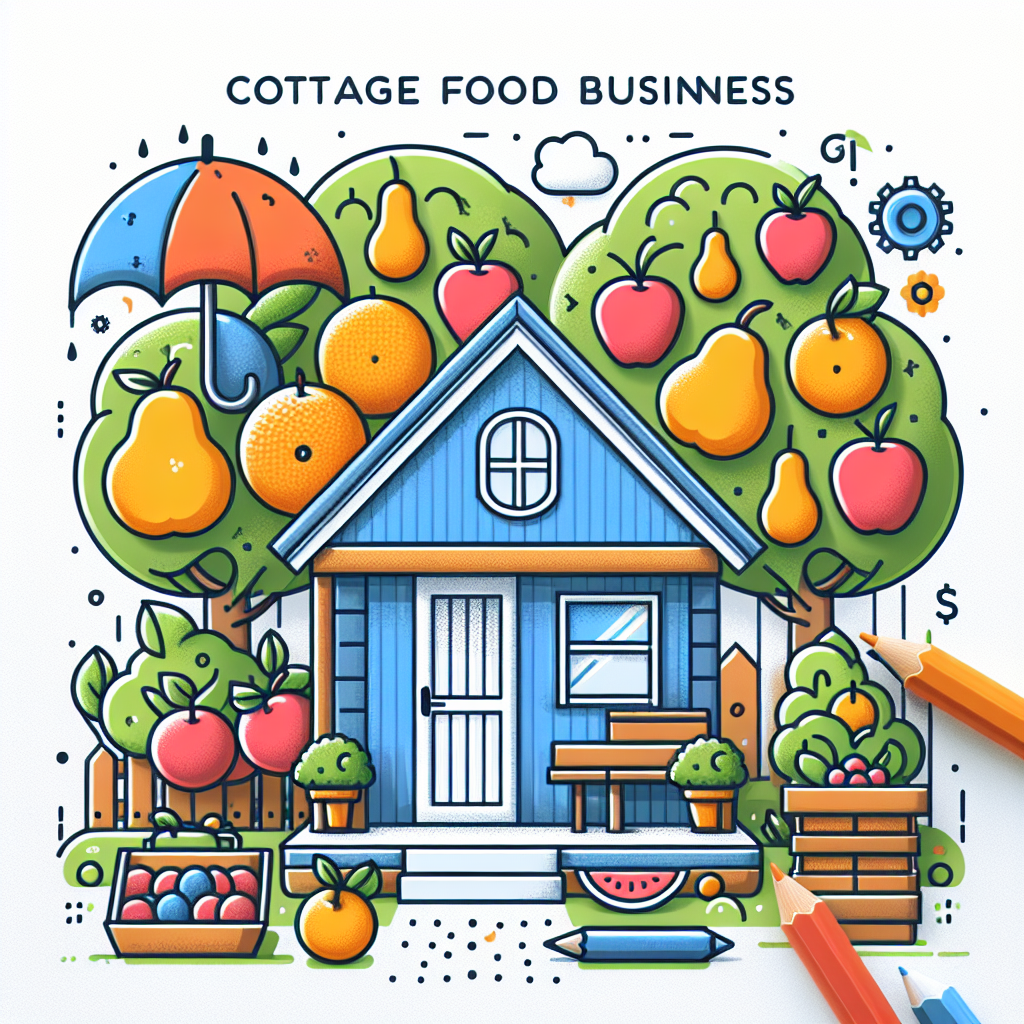Filed under Business Insurance on
Cottage Food Business: Is Insurance Necessary?

Starting a cottage food business can be an exciting venture, allowing you to transform a passion for creating homemade goods into a profitable enterprise. With the rise of locally-sourced and artisanal products, small-scale food producers are finding a growing market eager for high-quality, homemade options. However, as you embark on this journey, you may wonder about the nuances of running such a business, particularly regarding insurance. Is insurance necessary for a cottage food business? Let's delve into this critical consideration to ensure you are well-informed and prepared.
Understanding the Cottage Food Industry
Cottage food businesses operate under regulations that allow individuals to prepare and sell low-risk food products from their homes. These products frequently include baked goods, jams, jellies, and other non-perishable items. Each state has its own laws governing cottage food operations, with specific guidelines regarding what can be sold, where, and how much a business can earn. Therefore, it’s essential to conduct thorough research on your state’s requirements before starting.
The Regulatory Landscape
The cottage food industry is characterized by state-specific regulations aimed at maintaining food safety and protecting consumers. Typically, these regulations outline production limits, types of allowable products, and labeling requirements. While the need for insurance isn't universally mandated by state laws, obtaining coverage can be a prudent decision for several reasons.
Why Consider Insurance for Your Cottage Food Business?
Insurance acts as a safety net, providing protection against unforeseen incidents that could jeopardize the financial stability of your business. Here are several reasons why insurance could be beneficial:
- Liability Protection: Even with the most stringent safety measures, there's always a risk of products causing harm or illness to consumers. Product liability insurance can cover legal costs and settlements in such cases.
- Business Assets Protection: Your equipment and ingredients represent significant investments. Insurance can cover losses from theft, fire, or natural disasters.
- Vendor Requirements: Some markets or retailers that permit cottage food sales may require proof of insurance before allowing you to sell your products on their premises.
Types of Insurance for Cottage Food Businesses
There is a range of insurance options available, each offering different forms of protection:
- General Liability Insurance: This insurance covers basic risks such as third-party injuries or property damage resulting from your business operations.
- Product Liability Insurance: Specifically tailored for food businesses, this insurance covers claims related to foodborne illnesses or allergic reactions caused by your products.
- Business Property Insurance: Protects your home-based business assets, including equipment and ingredients, against damage or theft.
- Commercial Auto Insurance: If you use a vehicle for business purposes, commercial auto insurance is critical, as personal auto policies typically do not cover business-related accidents.
The Role of Risk Management
While insurance offers critical protection, incorporating risk management strategies can further safeguard your cottage food business. Risk management involves identifying potential risks and implementing measures to minimize them. Consider these strategies:
- Stringent Sanitation Practices: Maintaining the highest cleanliness standards can significantly reduce the risk of contamination.
- Transparent Labeling: Clearly state all ingredients and potential allergens on labels to prevent adverse health reactions in consumers.
- Customer Feedback Mechanisms: Implement a system for customers to report issues or concerns, allowing for prompt resolution and reduced legal repercussions.
Consulting with Industry Experts
Engaging with industry experts can provide invaluable insights into both the operational and legal aspects of running a cottage food business. Institutions like local small business development centers or agricultural extension offices often offer resources and training. Additionally, seeking guidance from insurance agents can help you tailor coverage to match the specific risks and needs of your business.
The Cost Factor
One common concern about acquiring insurance is the cost. However, many insurance providers offer flexible plans tailored for small businesses, ensuring affordability while delivering necessary coverage. The cost of insurance can vary depending on the type of products you sell, your sales volume, and the coverage level you choose. Compare quotes from various providers to find a suitable plan that aligns with your budget and risk exposure.
Case Studies and Industry Insights
Taking a look at examples of cottage food businesses that have navigated the path of insurance can provide valuable insights. Many successful entrepreneurs cite insurance as a cornerstone of their long-term viability, helping them recover from unforeseen setbacks and build customer trust.
For instance, a home baker in California who invested in product liability insurance could continue operations without financial ruin following a suit alleging allergic reactions. This illustrates how insurance can play a crucial role in the resilience and continuity of a cottage food business.
Keeping Up with Industry Trends
The cottage food industry is dynamic, with trends such as demand for gluten-free or organic products shaping consumer expectations. Staying informed about these trends can guide your business strategy and help you anticipate potential risks needing insurance coverage. Industry reports, culinary expos, and networking with peers are excellent ways to keep your finger on the pulse of market and regulatory changes.
Weighing the Decision
Ultimately, deciding whether to secure insurance for your cottage food business involves assessing your risk tolerance and business goals. While some may view insurance as an unnecessary expense, others recognize its value as a safeguard against potentially catastrophic loss. Balancing these considerations ensures that your cottage food enterprise remains both protected and profitable.
In conclusion, while insurance for a cottage food business might not be legally mandatory across all states, its advantages in risk mitigation and legal protection cannot be understated. By understanding the necessity of insurance, exploring available options, and integrating fundamental risk management practices, you can foster a thriving and secure cottage food business. Whether you are just starting or looking to expand, considering insurance could be one of the most prudent business decisions you make.





